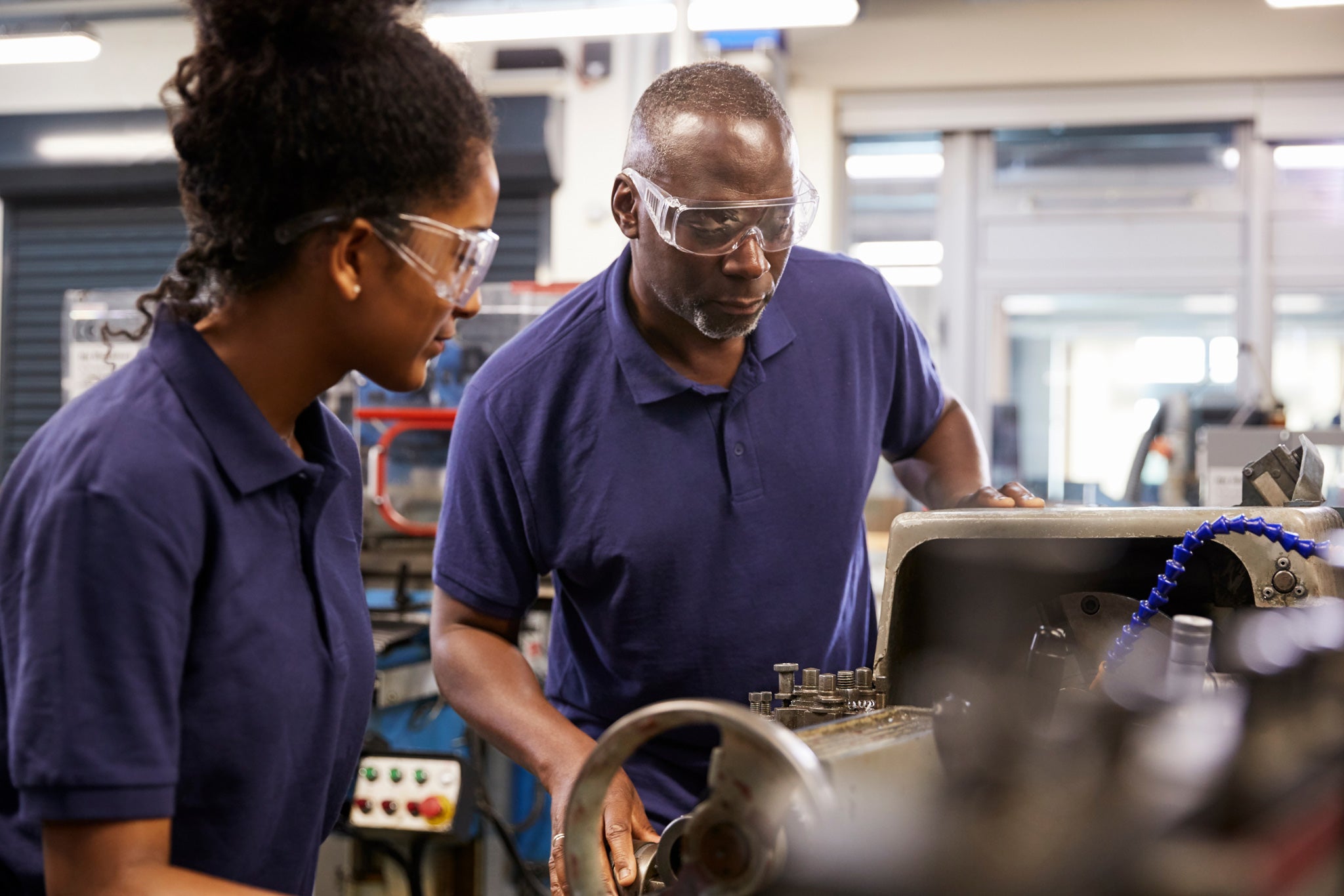Invest in the talent pipeline for a strong manufacturing sector
THE ARTICLES ON THESE PAGES ARE PRODUCED BY BUSINESS REPORTER, WHICH TAKES SOLE RESPONSIBILITY FOR THE CONTENTS

ABB is a Business Reporter client
Industry can overcome misconceptions that can be a barrier to young people taking up a career in manufacturing
The pandemic has accelerated already-existing transformations within manufacturing, particularly the need for greater digitalisation. It’s also highlighted manufacturing’s economic importance. According to the National Association of Manufacturers (NAM), the sector contributes $2.71 trillion to the economy every year, making US manufacturing equivalent in value to the world’s eighth-largest economy.
It is true that automated solutions such as robotics will be a driving force behind further growth. However, investing the right amount of time and resources into both current and future employees is equally important.
According to NAM, there were 860,000 manufacturing job vacancies in the US as of March 2022. Not surprisingly, there is now a strong demand for new talent within the industry. This means attracting and retaining a high-calibre workforce is a top priority. However, to secure the early career talent required to drive the next generation of American manufacturing, companies must promote manufacturing jobs and invest in skills training from an early age like other countries do.
A new era in manufacturing
Manufacturing jobs have historically been imagined to be unsafe, hot, manual and difficult. To overcome this perception, educators, investors and businesses in the sector are taking action. Many have already launched outreach programmes that enable students to learn about the industry through education and practical experience.

One simple and popular approach is a site visit. By allowing students, as well as their parents and educators, access to a manufacturing site, they can see first-hand what it’s like to work alongside modern technology in a bright, clean and safe environment. This practice flips the popular misperception of the industry on its head and reveals the reality: manufacturing is a continually evolving, technologically advanced sector with excellent growth prospects.
Another key tool in finding tomorrow’s manufacturing professionals is ensuring that every student has access to high-quality STEAM (science, technology, engineering, arts and math) education. At ABB, we are committed to eliminating barriers to education. That’s why we offer tuition reimbursement for employees and continue to invest in internship and apprenticeship programmes in high schools across the US.
These programmes focus on advanced technologies and automation in the manufacturing sector and offer frequent opportunities for site visits. We have also donated $1 million for advanced manufacturing equipment to the Peak Innovation Center in Fort Smith, Arkansas, a career and technology facility that promotes STEAM education opportunities for high school students.
Here, students learn how to operate that equipment, use data to solve real-world problems and acquire the “soft skills” they need for a career in manufacturing.
People will always matter
Today, the US manufacturing sector is currently losing more workers than it is gaining. This is unsustainable and will limit the industry if the trend continues. We are also experiencing a quick shift to Industry 4.0 technologies and, as a result, must be able to adapt to the new skills and mindset this demands.
Fundamentally, it’s crucial now more than ever to have a solid pipeline of technically skilled talent to realise this change. It is our responsibility to share the benefits of manufacturing careers with future talent and guarantee that they have the resources to pursue a STEAM education if they choose to.
There is still much work to be done. The greater change the industry experiences, the more education will be required, and it’s clear that the pace of change is accelerating. Companies that lead the charge will, of course, have the advantage, but for this transition to succeed, we need a collective effort. Industry, educators and economic development partners must work together to ensure that the needs of tomorrow are met by investing in the right kinds of training and talent development today.
Visit our website to learn more about ABB careers
Originally published on Business Reporter
Subscribe to Independent Premium to bookmark this article
Want to bookmark your favourite articles and stories to read or reference later? Start your Independent Premium subscription today.
